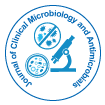

Gracelyn Anthony Doss
Culcasia falcifolia is a medicinal plant which is traditionally used in Nandi County, Kenya in the treatment of epilepsy. The leaf of Culcasia falcifolia is used as ash (internal) for epilepsy (Pascline et al., 2008). The study was aimed to evaluate the antiepileptic activity of aqueous alcoholic extract of C. falcilofia against PTZ induced seizure in laboratory mice. The objectives of the present study are the following: to evaluate the anticonvulsant activity of ethanol extracts of C. falcifolia on PTZ induced seizures in Swiss albino mice; to evaluate the effect of ethanol extract of C. falcifolia on the levels of endogenous antioxidant enzyme levels of PTZ induced mice in brain tissue of Swiss albino mice; to analyze the phytochemicals present in the ethanol extract of C. falcifolia; to identify and isolate the bioactive phytochemical in the ethanol extract of C. falcifolia. Acute toxicity study was conducted as per Organization for Economic Co-operation and Development (OECD) 425 guidelines. The antiepileptic activity was assessed in four groups of six mice against PTZ induced seizure. The effect of the extract at the dose levels 200 and 400 mg/kg body weight was evaluated using diazepam as positive control (5mg/kg). At the end of the antiepileptic study, the animals were sacrificed and the brains were removed and homogenized to estimate the levels of endogenous antioxidant enzyme such as superoxide dismutase, catalase, glutathione reductase, glutathione peroxidase and lipid peroxidation. Finally, phytochemicals present in the extract were screened and bioactive phytochemicals were identified and separated. The results of the study are as follows: the acute toxicity study showed that the extract was safe and not toxic up to 2000mg/kg body weight. Antiepileptic study showed that the extract significantly (p<0.01** & p<0.001***) increased the latency and decreased the duration of convulsion and provided 100% protection (400mg/kg body weight) against mortality. The extract showed increased the endogenous antioxidant enzyme level (SOD, CAT, Glutathione reductase, Glutathione peroxidase) and decreased MDA. The phytochemical screening showed the presence of alkaloids, flavonoids, tannins, saponins, phenolic, sterols and cardiac glycosides. Flavonoids such as myrrcetin, kaempferol, isorhamnetin, spigenin, rutin, quercetin and chlorogenic acid eluted using ethyl acetate. The results suggest that ethanol extract of C. falcifolia is safe and possesses anticonvulsant activity due to the presence of flavonoids such as myrrcetin, kaempferol, spigenin, rutin, quercetin that has GABAergic agonism, sodium channels blockade, calcium channel blockade, glutamate receptors antagonism and antioxidant activity thereby act as anticonvulsant.